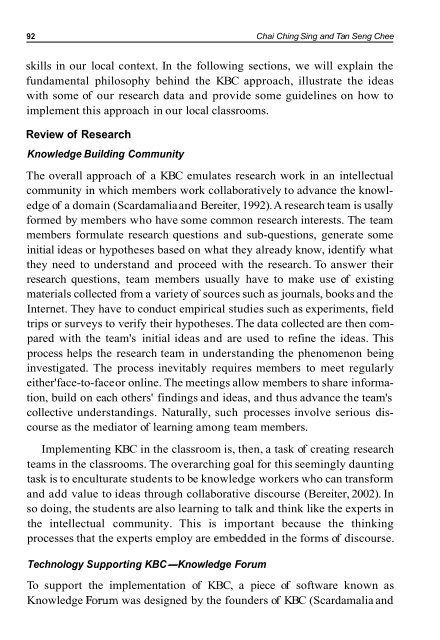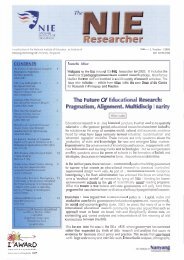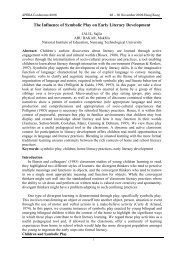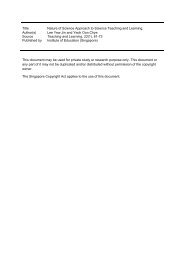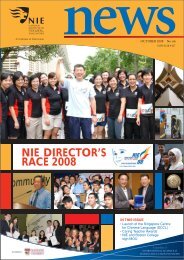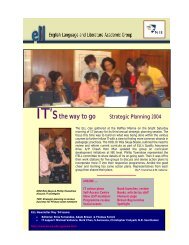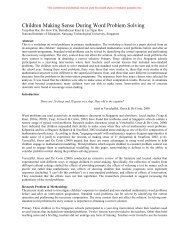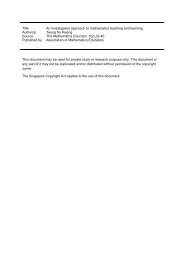Cooperative Learning - NIE Digital Repository - National Institute of ...
Cooperative Learning - NIE Digital Repository - National Institute of ...
Cooperative Learning - NIE Digital Repository - National Institute of ...
You also want an ePaper? Increase the reach of your titles
YUMPU automatically turns print PDFs into web optimized ePapers that Google loves.
92 Chai Ching Sing and Tan Seng Cheeskills in our local context. In the following sections, we will explain thefundamental philosophy behind the KBC approach, illustrate the ideaswith some <strong>of</strong> our research data and provide some guidelines on how toimplement this approach in our local classrooms.Review <strong>of</strong> ResearchKnowledge Building CommunityThe overall approach <strong>of</strong> a KBC emulates research work in an intellectualcommunity in which members work collaboratively to advance the knowledge<strong>of</strong> a domain (Scardamalia and Bereiter, 1992). A research team is usallyformed by members who have some common research interests. The teammembers formulate research questions and sub-questions, generate someinitial ideas or hypotheses based on what they already know, identify whatthey need to understand and proceed with the research. To answer theirresearch questions, team members usually have to make use <strong>of</strong> existingmaterials collected from a variety <strong>of</strong> sources such as journals, books and theInternet. They have to conduct empirical studies such as experiments, fieldtrips or surveys to verify their hypotheses. The data collected are then comparedwith the team's initial ideas and are used to refine the ideas. Thisprocess helps the research team in understanding the phenomenon beinginvestigated. The process inevitably requires members to meet regularlyeither'face-to-face or online. The meetings allow members to share information,build on each others' findings and ideas, and thus advance the team'scollective understandings. Naturally, such processes involve serious discourseas the mediator <strong>of</strong> learning among team members.Implementing KBC in the classroom is, then, a task <strong>of</strong> creating researchteams in the classrooms. The overarching goal for this seemingly dauntingtask is to enculturate students to be knowledge workers who can transformand add value to ideas through collaborative discourse (Bereiter, 2002). Inso doing, the students are also learning to talk and think like the experts inthe intellectual community. This is important because the thinkingprocesses that the experts employ are embedded in the forms <strong>of</strong> discourse.Technology Supporting KBC-Knowledge ForumTo support the implementation <strong>of</strong> KBC, a piece <strong>of</strong> s<strong>of</strong>tware known asKnowledge Forum was designed by the founders <strong>of</strong> KBC (Scardamalia and


